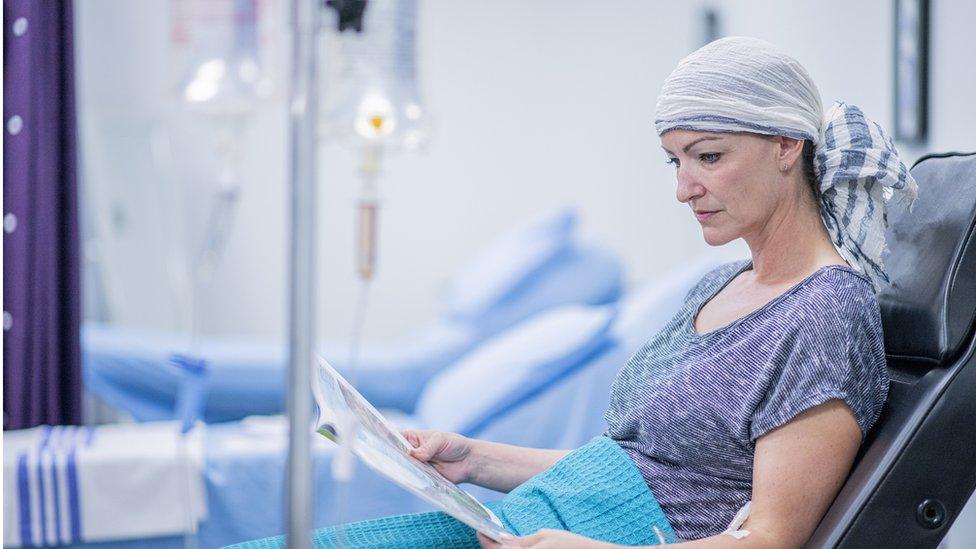A&E in Wales: 'Broken system' after worst waiting times
- Published
- comments
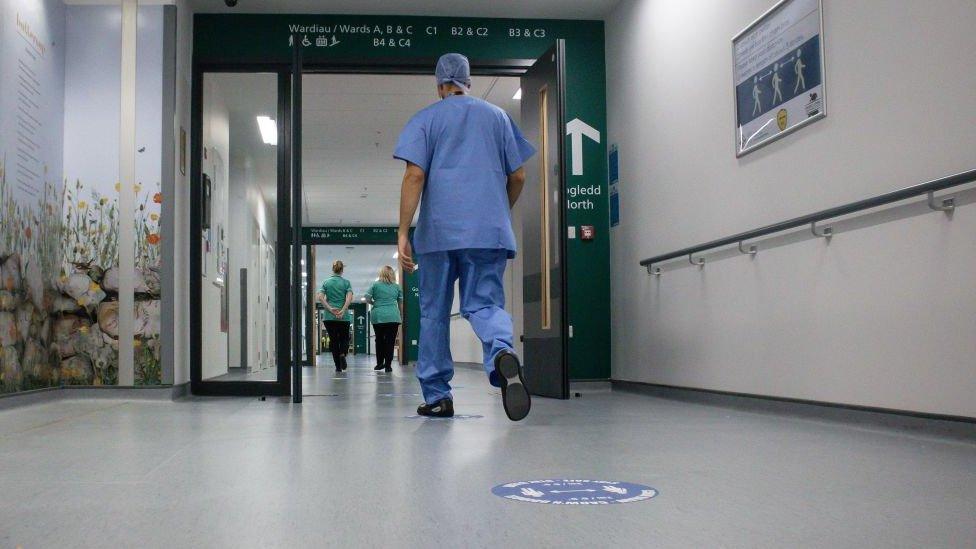
The latest NHS performance figures showed the worst A&E figures on record in March
Doctors have warned that the Welsh NHS is "broken" in the wake of the worst set of waiting time figures for accident and emergency (A&E).
Waiting times hit a record high, with more than 10,000 patients waiting longer than 12 hours to be seen.
The Royal College of Emergency Medicine said the crisis was "deeply distressing" for patients and staff.
The Welsh government said high staff sickness rates and issues discharging patients were adding to delays.
New figures, published on Thursday, showed both the four-hour and 12-hour waiting times were the worst on record in March.
Ambulance response times also deteriorated to the second worst on record.


The latest NHS performance figures published on Thursday also showed a 22nd successive month of rising waiting lists.
The total number of "patient pathways" rose to 691,885 waits for hospital treatment in February, but the rate of increase has continued to slow down.
As one patient may be on several "pathways" to treatment, the number of patients affected will be lower.
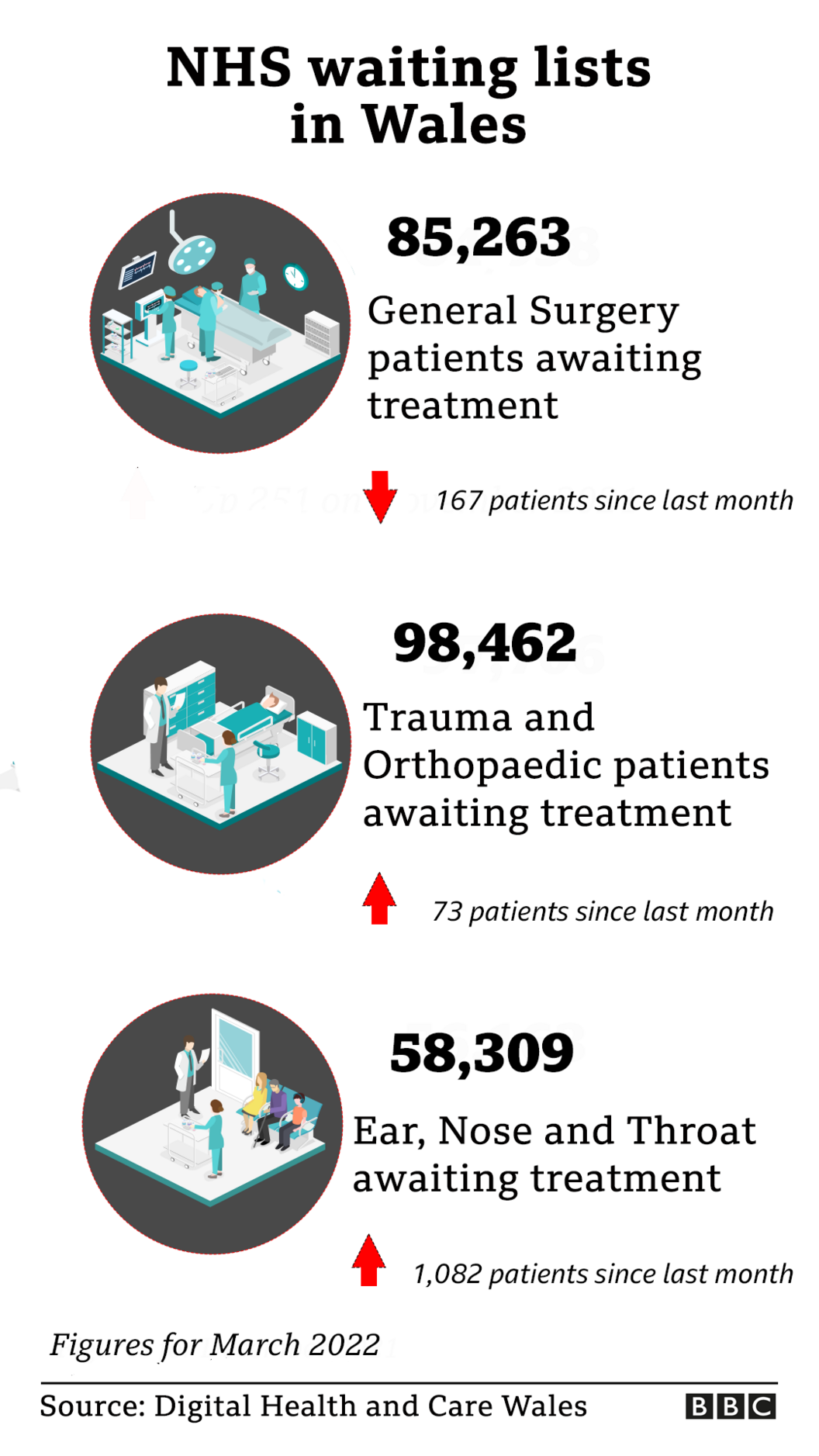

Darren Hughes, director of the Welsh NHS Confederation, which represents health boards, said the pressure was not limited to hospital services, with funding and staffing difficulties leading to "phenomenal pressure" on social care within the community.
"It's a whole system issue from accident and emergency, GPs, community pharmacies, but also social care."
"The system's been under pressure for a considerable amount of time."
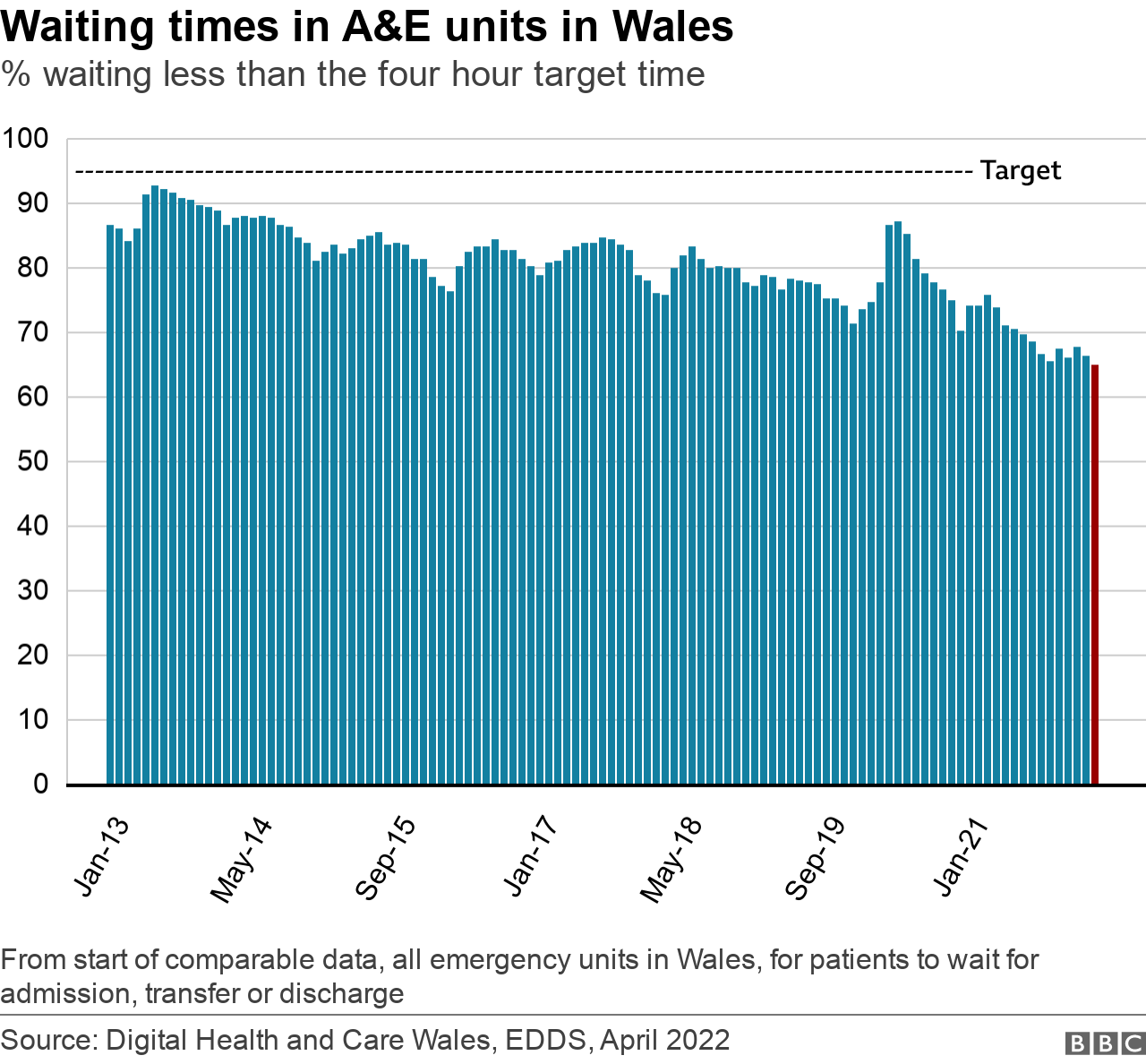

Worst waiting times in emergency units
The performance against both four-hour and 12-hour targets were the worst on record.
Only 65.1% of people were seen within four hours at A&E - a deterioration on the previous worst and since revised figure of 65.6% in October.
This dropped as low as 44.1% at Glan Clwyd Hospital in Denbighshire and 46.2% at Wrexham Maelor.
More patients were also waiting longer than 12 hours to be treated than in any month to date - 10,886. The target is that no-one should be waiting this long.
Average daily attendances to A&E during March showed a sharp rise - 232 more attendances a day than the previous month.
A lot of our staff are increasingly burned out and morale is a long term problem because we're not able to deliver the standard of care that we believe our patients deserve
What's it like on the front line in emergency care?
Dr Rob Perry, vice chair of the Welsh board at the Royal College of Emergency Medicine (RCEM), said the figures were very concerning and indicative of "severe, long term stresses" in A&E.
"We're seeing increased waits for an ambulance, increased waits in an ambulance and we know within departments there are increased delays in waiting for a bed.
"Lengthy waits do cause harm, which we don't have an easy solution for."
Dr Perry, a consultant at Ysbyty Gwynedd in Bangor, said there were very challenging staffing issues, with a chronic shortage of medical and nursing staff.
That includes a shortage of 100 consultants in emergency medicine across Wales.
Covid was still adding to day-to-day staffing issues, apart from long-term stresses on the system.
"The constant pressure makes it difficult to get people in," he said. "It's fair to say, a lot of our staff are increasingly burned out and morale is a long term problem because people are aware we're not able to deliver the standard of care that we believe our patients deserve."
Dr Perry said the system was "gummed up" with a plan needed to involve not only social care but emergency care at the same time.
He added hospitals are still seeing people with severe Covid. "We're still having to segregate people who might turn out to be positive and that creates additional pressure on the system, with a lot of people who have Covid but are in hospital for something else."
Dr Suresh Pillai, vice president of the RCEM in Wales, said the "health system is broken" and more patients would come to harm if the situation continued.
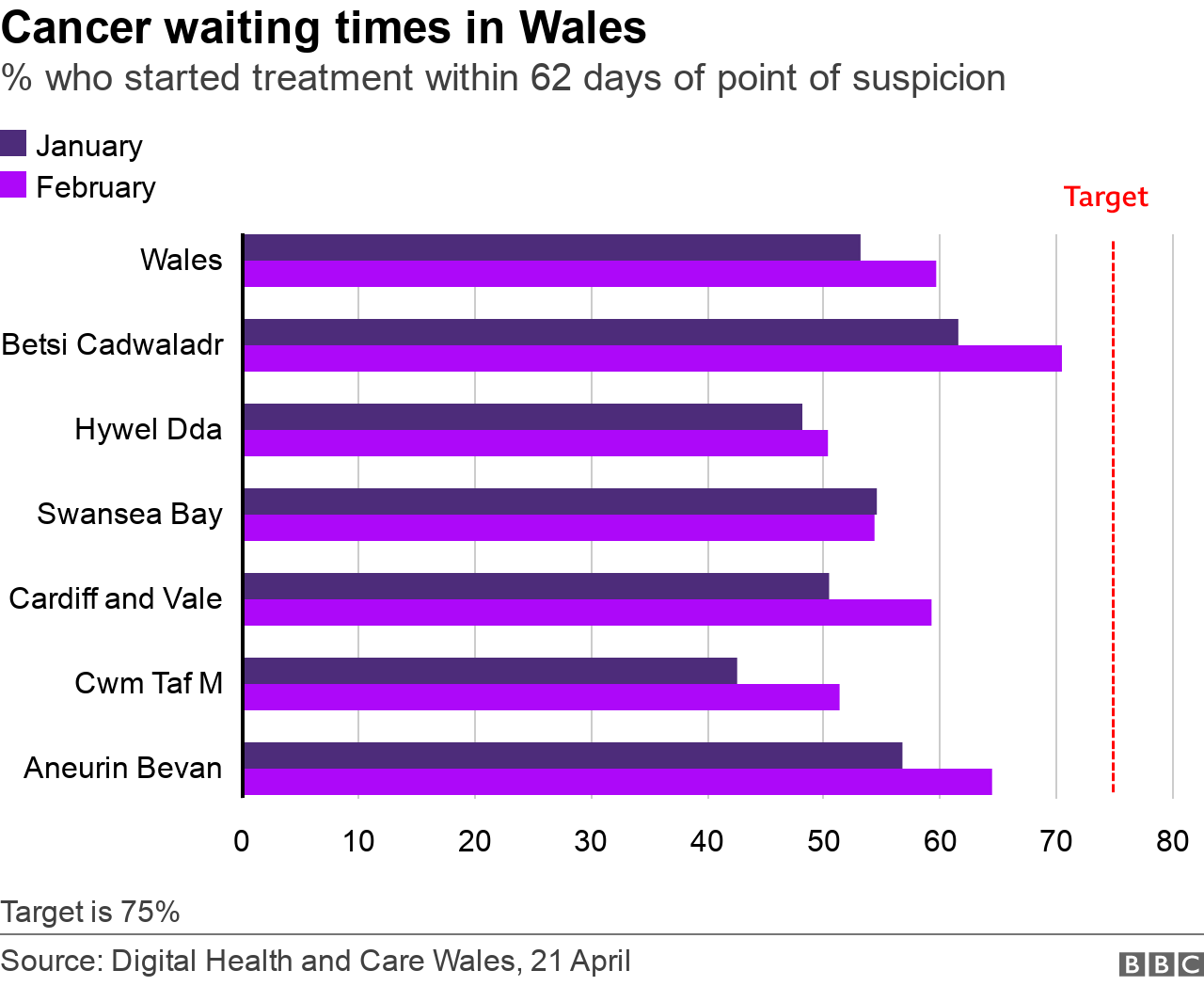

Cancer waiting times improve but still below target
In February, 1,530 pathways, where the patient was newly diagnosed with cancer, started treatment - up 2.5% compared to the previous month, and an increase of 6.8% on the same month in 2021.
Performance against the 62-day treatment target improved on the previous three months but is still below the target.
Richard Pugh, of Macmillan Cancer Support in Wales, said an estimated 620 people did not start their treatment on time in February "meaning they faced anxious and potentially harmful delays".
He added: "While the statistics show a slight improvement on last month's data, the figures also show a worrying variation in treatment times for different cancer types with fewer than half of people with gynaecological, urological and lower gastrointestinal cancers being treated on time."
There was also an increase in calls to the Welsh Ambulance Service during February - the 10th month in a row that more than 100 life-threatening calls were made each day.
Response times to life-threatening or "red" calls saw 51.1% arriving within the eight minute threshold, the joint second lowest on record.
What's been the response?
Organisations representing nurses and doctors, and patients, and opposition parties called for urgent action from the Welsh government to address the mounting pressures.
The Royal College of Surgeons said planned surgery in some areas was coming to a standstill, with last-minute cancellations leaving patients "waiting in pain and distress", and called for surgical hubs to be opened across Wales to get elective services "back up and running".
The Welsh NHS Confederation said emergency departments were facing "the most serious pressure we've probably ever seen with the number of people coming through the front door with serious conditions".
Its director Darren Hughes said the ambulance service was also under "enormous pressure".
"I think we need to debunk the myth that Covid has gone away," he said. "The impact it's having on the NHS is going to be with us for years to come."
Plaid Cymru's Rhun ap Iorwerth said the figures were "immensely worrying", while Conservative health spokesman Russell George added: "Every one of these cases is more than a mere statistic - it is a person languishing in pain wondering how the public services they pay for have been so badly mismanaged."
Welsh Liberal Democrat leader Jane Dodds called the figures "catastrophic".
The Welsh government said a number of factors were adding to pressures in NHS departments, and impacting the ability to "deliver timely care consistently".
"These include higher sickness absence rates and difficulties in discharging people from hospital, resulting in longer delays in emergency departments for beds," a spokeswoman said.
"Next week we will publish a detailed plan on how we will tackle the waiting times for patients whose treatment has been delayed by the pandemic."

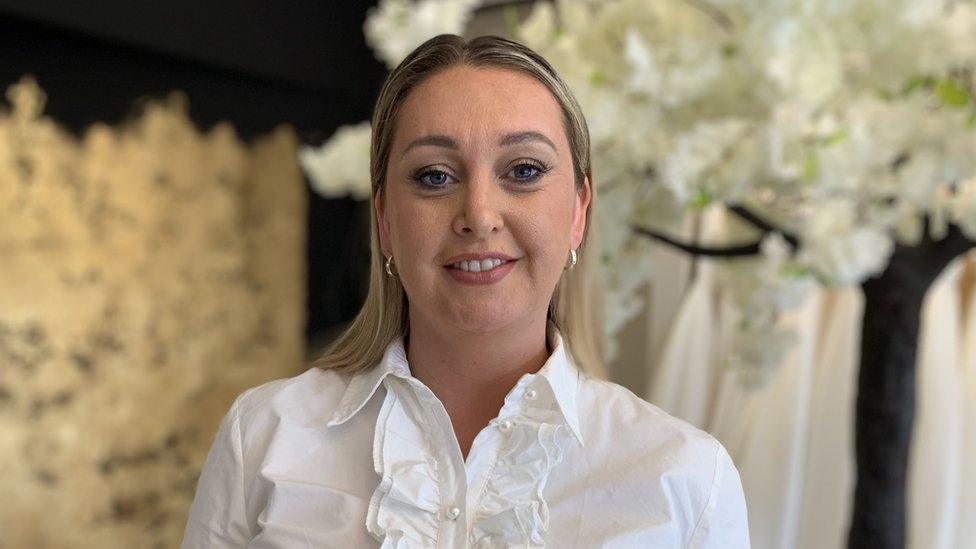
Jessica Ricketts has been on a hysterectomy waiting list since 2019
'Every day brings fatigue, sickness, pain, or bleeding'
Jessica Ricketts started developing gynaecological problems just over 10 years ago and has been in pain since.
The 35-year-old was put on a hysterectomy waiting list in 2019 and told she would have about a year to wait.
But when the pandemic hit, operations were cancelled.
Three years on Ms Ricketts, who runs a bridal shop in Barry, Vale of Glamorgan, is still waiting to hear when her surgery will go ahead.
She said there were not many days when she was not in pain and has been left feeling forgotten about.
"Only this year, since my symptoms got worse, have I started to go back and see consultants again," she said.
"Every day there's some sort of symptom whether it be fatigue, sickness, pain, bleeding.
"There is a symptom happening on every day of every month."
- Published20 April 2022
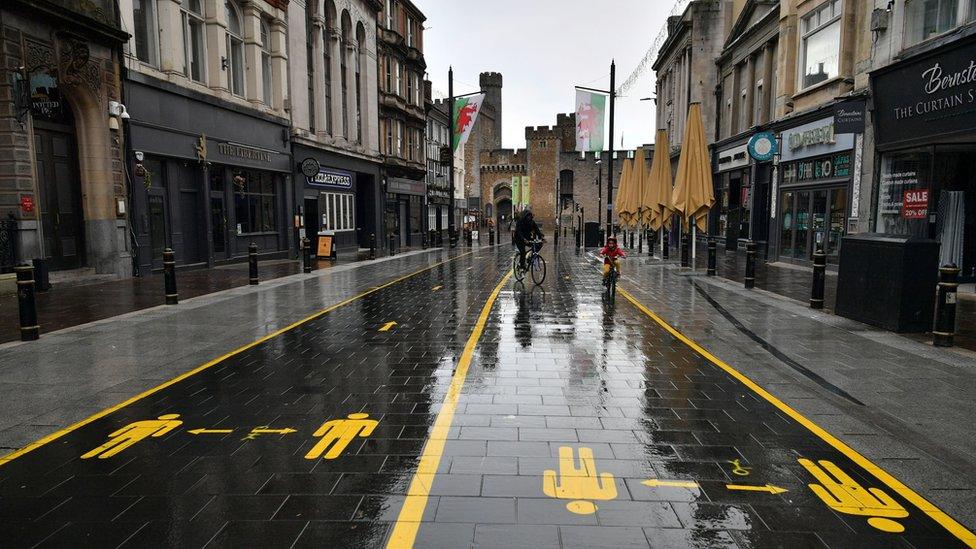
- Published24 March 2022
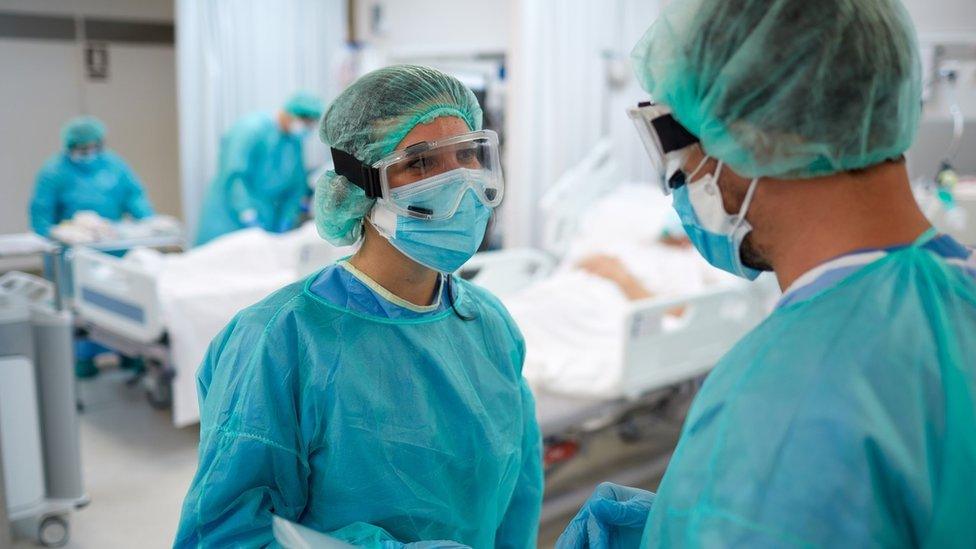
- Published17 February 2022

- Published31 March 2022
